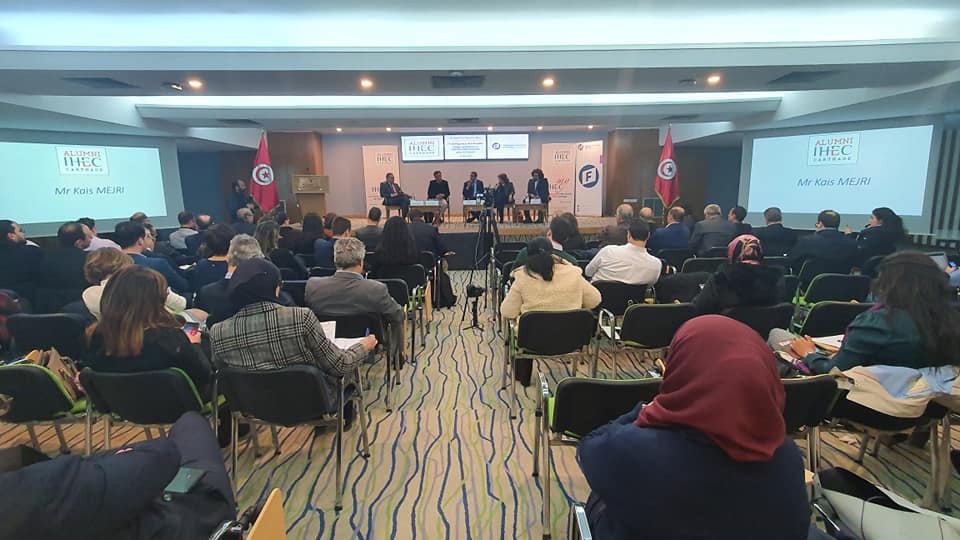Tunisia, an Artificial Intelligence Hub in Africa and the MENA Region

Despite today's world progressing at lightening speed, are we really ready to be part of a world where technology rules? To find out, our colleagues at FNF Tunisia and Libya discussed this topic with the Alumni IHEC Carthage, at the IACE headquarters on March 04th, 2020.
Indeed, Tunisia has all the assets to be the AI hub of Africa and the MENA. The latest report on the degree of maturity of governments in terms of AI confirms this, according to Kais Mejri, Director General of Innovation and Technological Development (Ministry of Industry and SMEs).
The Oxford Insights Foundation and the International Development Research Centre have published the 2019 edition of the Government AI Readiness Index. This index shows how ready governments around the world are to take advantage of the benefits of Artificial Intelligence (AI). The index analyzed 194 countries and territories and ranked them according to their readiness to use AI in the delivery of public services.
Each country was assigned a score composed of 11 indicators divided into four groups (governance, infrastructure and data, skills and education, and government and public services). According to this index, Tunisia ranked 54th in the world with a score of 5,652 and placed second in Africa, just behind Kenya. It is far ahead of South Africa (who scored 68th place), Ghana (75th), Morocco (80th) and Algeria (141st).
Such a ranking can at best encourage policy makers to take more measures to succeed in this new technological shift and make artificial intelligence an essential lever for the development of our country.
Mustapha Mezghani, expert in Digital Economy and Public Policies, draws up an inventory of artificial intelligence, which according to him, even without realizing it, is omnipresent in everyday life for instance in social networks.
The question is: what is the situation in Tunisia? Mustapha Mezghani answers, "When we talk about AI, we see it as being the preserve of startups. Today, small companies already create and develop AI-based products for export".
Clearly, through this debate, it shows that the future of tomorrow is essentially composed of digital technologies and that AI is a tool available to Tunisian companies. This can enable them to improve their competitiveness.
A related question is whether Tunisia can have a future in the automobile industry? Mustapha Mezghani wrote an article on this subject in le Manager stating, "there are no lack of skills in Tunisia, but we must position ourselves correctly. If Tunisia participates in the automobile industry, it can be a leader in electric cars by 2030.”
Amel Borgi, lecturer at the Higher Institute of Informatics, Application of Data Mining and the Processing of Imperfect Knowledge in the business industry, emphasizes the interest of AI within the academic community.
She states, "We have several lines of research on themes such as image analysis, analysis and formal design... But what is missing today, in my opinion, is the lack of communication and the lack of knowledge between companies and the universities. Such a debate, today, will allow us to better understand the business environment in order to establish these exchanges ".
Currently, Tunisian startup InstaDeep is on its way to becoming the African leader in Artificial Intelligence.
InstaDeep currently employs 70 international staff at the startup's headquarters in London and offices in Tunis, Paris, Nairobi and Lagos and is the leading AI company in Africa. The startup harnesses the power of artificial intelligence to create systems capable of autonomous decision making for its international clients. InstaDeep teams develop artificial intelligence for the following industries: robotics, mobility, energy, logistics, finance and healthcare. InstaDeep has successfully completed a $7 million financing round.